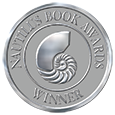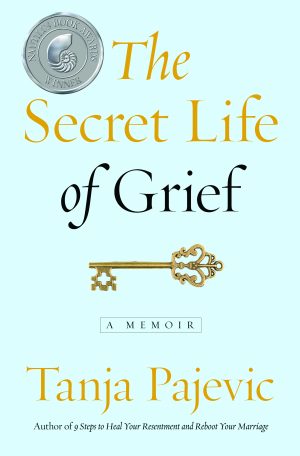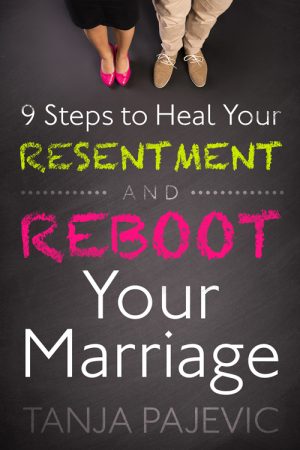The other day, I realized that I took my first creative writing class 30 years ago as a freshman at the University of Wisconsin-Madison. Yikes. That got me thinking about what I’ve learned along the way. Today marks the first part in a new 3-part series this inspired: What I Wish I’d Known Then.
Part 1: Don’t Give Away Your Power
Traditional writing workshops can be a great place to learn the craft and technique of writing. Since it’s also important to learn how your writing impacts the reader, a writing workshop is a good place to test this out. However, some writing workshops can do more harm than good.
I’ve seen this over and over again as well as experienced it myself. While constructive criticism can help shine a light on what needs to be strengthened in your writing, it can also shut you down. Especially if you’re not ready for feedback.
 That’s why I’m vigilant about encouraging writers to keep the tender, new shoots of their stories to themselves. If you’ve just planted the starter plant version of your story in the ground, the last thing you need is somebody jumping in and prematurely trying to weed it. Wait until your story/plant has strong roots and is starting to get a little overgrown. That’s when you’ll want feedback to help you shape it.
That’s why I’m vigilant about encouraging writers to keep the tender, new shoots of their stories to themselves. If you’ve just planted the starter plant version of your story in the ground, the last thing you need is somebody jumping in and prematurely trying to weed it. Wait until your story/plant has strong roots and is starting to get a little overgrown. That’s when you’ll want feedback to help you shape it.
The other reason I’m wary of traditional writing workshops is because I’ve found that constructive criticism inadvertently set writers up to question their inner wisdom.
Here’s why:
In a workshop with a group of random people, you’ll usually find
- a few people who resonate with your work
- some lukewarm folks
- a few haters/ folks who don’t read your genre and/or don’t “get” your writing.
Out of 25 people, maybe 3 are your ideal audience—the people you want to be getting feedback from.
But the traditional writing workshop isn’t set up for you to get feedback from your ideal audience. It’s set up to get feedback from everyone. So the workshop churns on, with everyone giving equally weighted feedback on what’s not working and what needs to be improved. By the time you walk out of workshop like this, you’ve forgotten the bits of praise for what worked well and are beginning the slow sink into despair that comes with hearing 25 people critique your writing.
This is where a good teacher is worth her weight in gold. If she knows what she’s doing, she’s able to bridge the gap and give you positive and productive feedback, regardless of whether she’s a perfect fit for your writing.
Unfortunately, this is also the point when many budding writers start to shut down. For some, this happens in their first workshop, while for others, it takes years.
By the time I left grad school, I was so shell-shocked from the feedback I’d been getting on my writing that it took me years before I would share my writing with anyone else. Between undergrad and grad school, I’d probably taken 20 writing workshops by that point and I was done. My writing back then tended to bring up a lot of strong emotions—I was a love-me or hate-me kind or writer, and over the years, the hate-me comments about broke me.
 This is also one of the reasons I eventually left academia. After years of teaching budding young writers, I simply couldn’t inflict that kind of damage on one more student. Since my goal has always been to give voice to another person, not to shut them down, I left academia in 2005 to bring my writing workshops into the larger community, where I learned to build my workshops on the positive feedback model so that I could be more helpful than harmful. (Manuscript reviews, by their nature, are more prescriptive.)
This is also one of the reasons I eventually left academia. After years of teaching budding young writers, I simply couldn’t inflict that kind of damage on one more student. Since my goal has always been to give voice to another person, not to shut them down, I left academia in 2005 to bring my writing workshops into the larger community, where I learned to build my workshops on the positive feedback model so that I could be more helpful than harmful. (Manuscript reviews, by their nature, are more prescriptive.)
But back to my larger point:
What those traditional writing workshops inadvertently taught me was to give away my power. To hand my heart over to someone who could stomp on it and tear it to pieces. A few pivotal teachers kept me from flying off the cliff (thank you, Jesse Lee Kercheval, Tony Ardizonne and Alyce Miller) and for them I will forever be grateful.
Here’s what I wish I’d been taught instead:
- Choose well. You get to choose who you share your writing with, so choose a teacher, school or coach who resonates with you. One who’s kind and supportive, not crass and judgmental. One whose vision and values align with your own.
- Don’t ever share your writing with someone who hasn’t earned the right to hear it. This has become one of my cardinal rules over the years. When we’re first mucking around with a story, sharing it too soon (especially when you’re in the shitty first draft stage) will shut you down. Same for those of you itching to share it with a family member because you want to get their validation. Nope. Don’t give your power away like that. Protect your story like the tender shoot it is. You’ll have plenty of time to share and get feedback once it’s more strongly rooted.
In other news:
You may have heard me talk about the importance of course correcting when it comes to writing, and it probably won’t surprise you to learn that this is a metaphor/belief that I use in all aspects of my life. With my kids officially out of school tomorrow, I’ve been realizing I need to do some course correcting around my work schedule. One of the ways I’ll be doing that is by posting new blogs posts every other week instead of every week over the summer.
So look for Part 2 of this 3-part series (How Long Does it Really Take to Write a Book?) in two weeks. In the meantime, I’d love to hear what you’re working on. Simply hit reply or leave a comment below.
P.S.: If you have a friend who could benefit from my posts, please forward these notes or invite them to join our community here.
P.P.S.: And as always, reach out with any questions. Email me at tanja@tanjapajevic.com or simply hit “reply” to this message. Hope you have a lovely week!



2 thoughts on “Don’t Give Away Your Power”
Thank you so much. I really needed to hear this today. I gain so many valuable insights from workshops, but I also feel it can be destructive to my own voice, my own narrative. Only yesterday a peer actually said, “Well, if it were my story…” It isn’t his story. Why is that so hard for some to understand?
Again, I appreciate your words.
Sincerely,
KC Rob
Glad it was helpful, KC Rob!